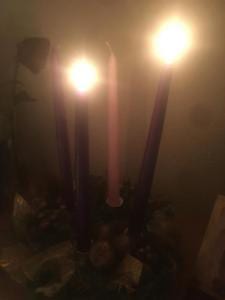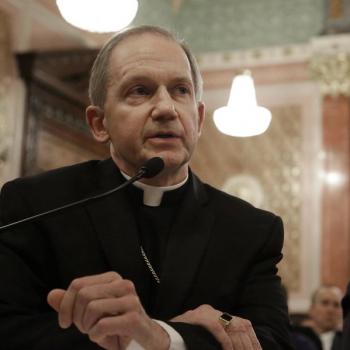 Advent is a season of expectation, of waiting, in hope. The most well-known Advent hymn overflows with heartbreak in giving voice to our yearning for the Promised One:
Advent is a season of expectation, of waiting, in hope. The most well-known Advent hymn overflows with heartbreak in giving voice to our yearning for the Promised One:
O come, O come, Emmanuel,
And ransom captive Israel,
That mourns in lonely exile here,
Until the Son of God appear.
But the readings for the Second Sunday in Advent, especially the first reading, from Isaiah, are about liberation. We all know that Jesus came to liberate us from our sins. But just as important, and which should not be downplayed, is his role as a political liberator. “He shall judge the poor with justice,” Isaiah says, “and decide aright for the land’s afflicted.”
He shall strike the ruthless with the rod of his mouth,
and with the breath of his lips he shall slay the wicked.
Lest you think this is just Old Testament fire and brimstone, the Virgin Mary herself, centuries later, would echo this same sentiment in her Magnificat:
He hath shewed might in His arm: He hath scattered the proud in the conceit of their heart.
He hath put down the mighty from their seat, and hath exalted the humble.
But once divine justice is established, peace results, as Isaiah writes:
Then the wolf shall be a guest of the lamb,
and the leopard shall lie down with the kid;
the calf and the young lion shall browse together,
with a little child to guide them.
More personal
Matthew makes it more personal. In his account of John the Baptist beginning his mission, John has choice words for the Pharisees and Sadducees:
When he saw many of the Pharisees and Sadducees
coming to his baptism, he said to them, “You brood of vipers!
Who warned you to flee from the coming wrath?”
John’s use of “brood of vipers” is especially notable. Jesus too leveled this epithet against the Pharisees, in Matthew 12:34 and in 23:33. It is an especially harsh insult, believed by some to be the first century equivalent of “motherf—-r.” “Brood of vipers” also may be a sanitized form of “snake bastards.” Some may find these offensive. I do not. Jesus came from the working class and he surrounded himself with rough men from the working class. It should come as no surprise that he’d fall back on rough language when his Divine sense of justice was violated.
And he (and John) used it only against the Pharisees, elitist oppressors of the people, who “shut the door of the kingdom of heaven in men’s faces,” who “swallow up the property of widows, under cover of your long prayers, and who “award to God his tithe, though it be of mint or dill or cummin, and have forgotten the weightier commandments of the law, justice, mercy, and honour.” And who did worse.
Jesus, whose Sacred Heart burns with love for us all, came to save all. Still, we fail to heed his words—and the warnings in Isaiah and Matthew—at our peril. For this reason, Advent is a great gift, a few weeks during which we may ponder the Biblical meaning of justice for the least among us. As it says in the Psalm for the Second Sunday of Advent:
For he shall rescue the poor when he cries out,
and the afflicted when he has no one to help him.
He shall have pity for the lowly and the poor;
the lives of the poor he shall save.
God takes the side of the poor, the afflicted, and the lowly. In this season, when our attention is focused on a refugee family in a strange country, seeking shelter, this is what we must take to heart.
(This is an expanded version of a brief reflection published on the Blessed Sacrament Parish Facebook page. -spd)












